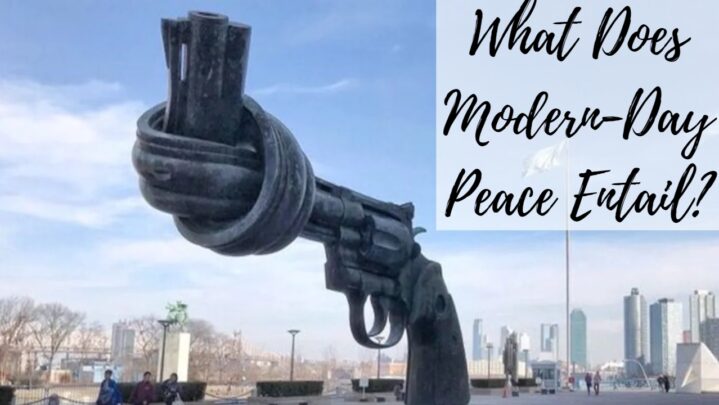Modern-day peace, at its most basic, entails the absence of violence, conflict, and oppression, as well as the existence of justice, equality, and societal harmony.
The maintenance of international relations based on mutual respect and collaboration is an essential part of modern-day peace. This includes establishing diplomatic links between states, promoting economic interdependence, and resolving disagreements peacefully via mechanisms such as dialogue and mediation.
At the same time, modern-day peace entails the defense of individual rights and liberties. This encompasses the right to free expression, journalistic freedom, and the right to congregate and protest peacefully. It also encompasses the promotion of social justice, which means guaranteeing equitable access to education, healthcare, and other fundamental requirements for all members of society.
Furthermore, modern-day peace entails environmental conservation and sustainable growth. This includes supporting sustainable practices and technology that lessen the environmental effect of human activities, as well as advocating the protection of natural resources and biodiversity.
Finally, modern-day peace requires the promotion of cultural variety as well as the celebration of many cultures and customs. This includes recognizing and respecting minority groups’ rights, encouraging cultural interaction and understanding, and attempting to eradicate preconceptions and stereotypes.
To summarize, contemporary peace is a complicated and comprehensive notion that necessitates the cooperation and participation of individuals, communities, and governments all around the world.





